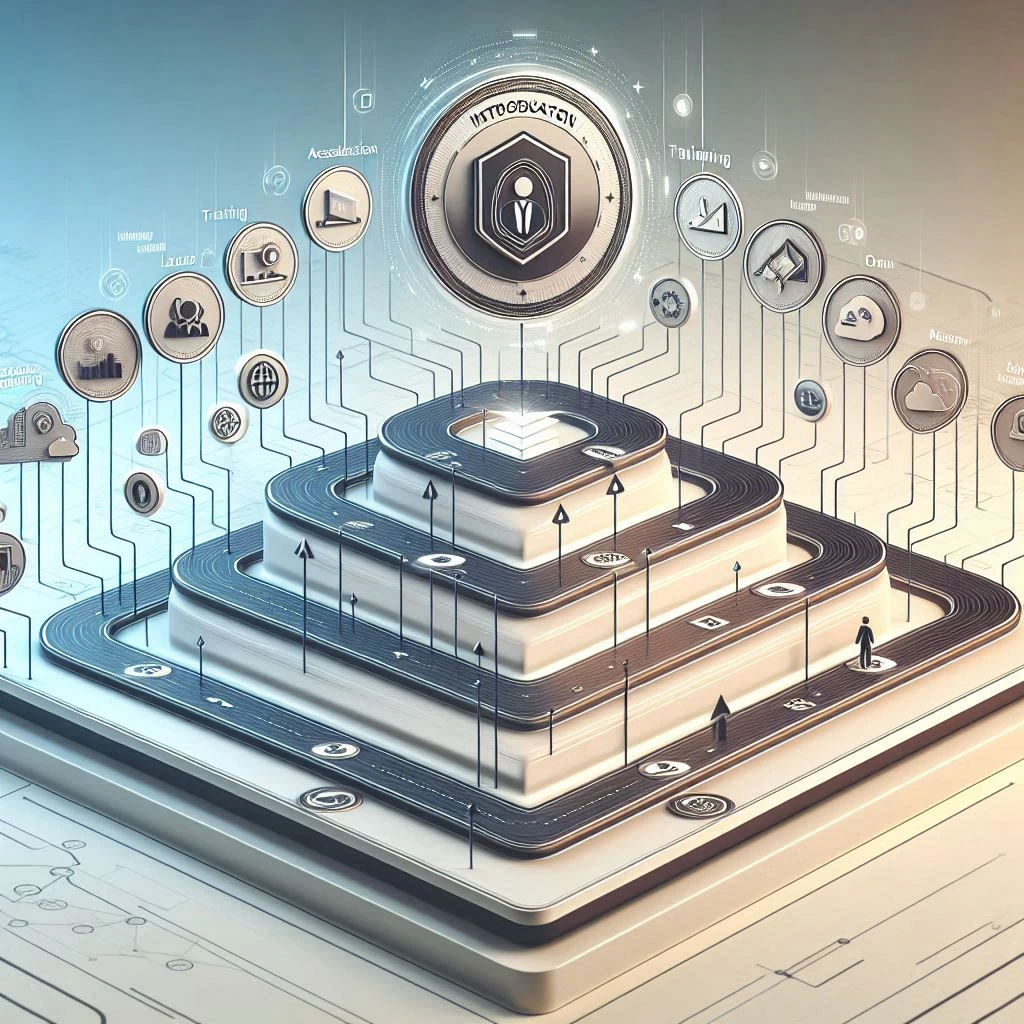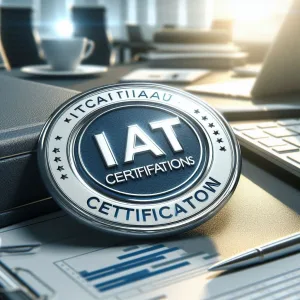In the realm of internal auditing, quality assurance reviews serve as a critical mechanism to ensure that audit activities meet established standards and effectively address organizational risks. These reviews involve systematic evaluations of the audit process, methodologies, and outcomes to uphold professionalism, integrity, and effectiveness within the audit function. As organizations increasingly embrace remote work, the dynamics of conducting these reviews have evolved significantly.
The shift to remote work has introduced unique challenges for internal audit teams, impacting their ability to maintain quality assurance standards. Remote audits, while offering benefits such as cost-efficiency and broader access to expertise, can also lead to difficulties in communication, collaboration, and oversight. The absence of physical presence may hinder the traditional methods of quality assurance, making it essential for audit teams to adapt their strategies to ensure that high standards are upheld even in a virtual environment.
This blog aims to provide valuable strategies for remote audit teams and managers to maintain quality assurance standards while working remotely. By exploring best practices and innovative approaches, we will highlight how internal audit functions can continue to deliver quality results, ensuring compliance and effectiveness in their operations despite the challenges posed by remote work.
Understanding Quality Assurance in Internal Audit
Quality assurance (QA) plays a crucial role in the internal audit process, particularly in a remote work environment. It ensures that audits are conducted effectively, consistently, and in compliance with established standards. Here are some key points to consider regarding quality assurance in internal audits:
Role of Quality Assurance in Internal Audits
- Ensures Compliance: QA helps organizations adhere to regulatory requirements and internal policies, ensuring that audit processes meet necessary standards and frameworks. This is vital for maintaining trust and accountability within the organization [10].
- Enhances Audit Effectiveness: By implementing QA practices, internal audit teams can improve the quality of their work, leading to more reliable findings and recommendations. This is essential for driving continuous improvement and organizational success [12].
- Identifies Areas for Improvement: Quality assurance reviews provide insights into the audit process, helping teams identify strengths and weaknesses. This feedback loop is critical for refining audit methodologies and enhancing overall performance [11].
Standards and Frameworks Relevant to Quality Assurance
- International Professional Practices Framework (IPPF): The IPPF, established by the Institute of Internal Auditors (IIA), provides a comprehensive set of standards and guidelines for internal auditing. It emphasizes the importance of quality assurance and improvement programs to maintain high audit standards [15].
- ISO 9001: This international standard focuses on quality management systems and is relevant to internal audits as it outlines requirements for consistent quality in processes. Organizations seeking ISO 9001 certification must conduct regular internal audits to ensure compliance with quality standards [10][12].
- Quality Assurance and Improvement Program (QAIP): Implementing a QAIP is essential for maintaining high standards in internal auditing. This program includes regular assessments, quality control reviews, and compliance audits to evaluate audit performance and adherence to professional standards [11].
Common Challenges in Ensuring Quality Assurance Remotely
- Communication Barriers: Remote work can lead to challenges in communication, making it difficult for audit teams to collaborate effectively. Establishing clear communication protocols is essential to ensure that all team members understand their roles and responsibilities [7].
- Technology Dependence: Remote audits rely heavily on technology, which can introduce risks related to cybersecurity and data integrity. Audit teams must implement robust cybersecurity measures to protect sensitive information during the audit process [6].
- Maintaining Engagement: Engaging team members and stakeholders during remote audits can be challenging. Utilizing video conferencing and screen-sharing tools can help maintain engagement and facilitate effective discussions [4].
- Quality Control: Ensuring consistent quality in audit work can be more difficult in a remote setting. Regular check-ins and feedback sessions can help maintain quality assurance standards and address any issues promptly [9].
Understanding the principles of quality assurance in internal audits is vital for remote audit teams and managers. By adhering to established standards and frameworks, and by addressing the unique challenges posed by remote work, organizations can maintain high-quality audit processes that drive continuous improvement and compliance.
Challenges of Remote Work for Quality Assurance Reviews
In the context of internal audits, maintaining quality assurance standards while working remotely presents several unique challenges. Understanding these challenges is crucial for remote audit teams and managers to develop effective strategies for overcoming them. Here are some key points to consider:
- Communication Barriers and Lack of Face-to-Face Interaction: One of the most significant challenges in a remote work environment is the reduced opportunity for direct communication. The absence of face-to-face interactions can lead to misunderstandings and misinterpretations of information, which are critical in quality assurance reviews. According to a poll, 52% of respondents identified building key relationships as a major challenge in remote auditing, highlighting the importance of personal connections in maintaining quality standards [11].
- Difficulty in Monitoring Performance and Adherence to Standards: Remote audits complicate the monitoring of team performance and adherence to established quality assurance standards. The lack of physical oversight means that auditors must rely heavily on digital records and self-reporting, which can introduce risks of oversight and errors. This reliance on technology can create gaps in assurance, as auditors may not have the same level of insight into the processes being reviewed [6][10].
- Technological Issues and Reliance on Digital Tools: The effectiveness of remote audits is heavily dependent on the technology used. However, challenges such as software malfunctions, connectivity issues, and the learning curve associated with new tools can hinder the audit process. Auditors often need to adapt to various digital platforms, which can be time-consuming and may lead to inconsistencies in how quality assurance reviews are conducted [1][12].
- Potential Reduction in Team Cohesion and Culture: Remote work can lead to a decline in team cohesion and organizational culture, which are vital for maintaining high-quality standards in audits. The informal interactions that typically occur in an office setting are often lost in a remote environment, potentially affecting team morale and collaboration. This disconnection can result in a lack of engagement and commitment to quality assurance processes, making it essential for managers to find ways to foster a positive remote work culture [14].
While remote work offers flexibility and efficiency, it also presents significant challenges for quality assurance reviews in internal audits. By recognizing these challenges, audit teams can implement targeted strategies to maintain high standards and ensure effective quality assurance in a remote environment.
Strategies for Maintaining Quality Assurance Standards Remotely
In the evolving landscape of remote work, maintaining high standards in quality assurance (QA) is crucial for the success of internal audit teams. Here are several actionable strategies that remote audit teams can implement to uphold these standards effectively:
- Leverage Technology: Utilize collaboration tools such as Zoom, Microsoft Teams, and project management software to enhance communication among team members. These platforms facilitate real-time discussions, file sharing, and project tracking, ensuring that everyone stays aligned and informed throughout the audit process. Effective use of technology can bridge the gap created by physical distance and help maintain quality standards [10][12].
- Establish Clear Guidelines and Expectations: It is essential to set clear guidelines regarding roles, responsibilities, and audit criteria. This clarity helps team members understand what is expected of them and how their contributions fit into the overall audit objectives. By defining these parameters, teams can work more cohesively and efficiently, reducing the risk of misunderstandings that could compromise quality [1][8].
- Implement Regular Check-Ins and Performance Reviews: Schedule consistent check-ins and performance reviews to monitor progress and address any challenges that may arise. These meetings provide an opportunity for team members to discuss their work, share feedback, and receive guidance. Regular assessments help ensure that quality assurance standards are being met and allow for timely adjustments if necessary [2][11].
- Encourage Continuous Learning and Professional Development: Promote a culture of continuous learning by providing access to training sessions, workshops, and resources that enhance team members’ skills. This commitment to professional development not only keeps skills sharp but also empowers team members to adapt to new challenges and technologies, ultimately contributing to higher quality outcomes [5][12].
- Foster an Inclusive Team Culture: Building an inclusive team culture is vital for promoting engagement and accountability among remote audit teams. Encourage open communication, recognize individual contributions, and create opportunities for team bonding. An inclusive environment fosters collaboration and motivates team members to take ownership of their work, which is essential for maintaining quality assurance standards [10][14].
By implementing these strategies, remote audit teams can effectively navigate the challenges of a virtual work environment while upholding the quality assurance standards necessary for successful audits.
Best Practices for Quality Assurance Reviews in a Remote Setting
In the evolving landscape of remote work, maintaining high-quality standards in internal audit processes is crucial. Quality assurance (QA) reviews play a vital role in ensuring that audit teams deliver consistent and reliable results. Here are some best practices that can enhance the effectiveness of quality assurance reviews while working remotely:
- Create a Structured Review Process: Establishing a clear and structured review process is essential. This includes defining timelines and milestones for each phase of the review. By setting specific deadlines, teams can ensure that reviews are conducted systematically and that all necessary steps are followed. This structure helps in tracking progress and maintaining accountability among team members [1][11].
- Utilize Digital Tools for Documentation and Evidence Collection: Leveraging digital tools is critical for effective documentation and evidence collection in a remote environment. Tools such as cloud storage, project management software, and collaborative platforms can facilitate seamless access to documents and data. This not only enhances transparency but also ensures that all team members can contribute to and review the necessary materials in real-time [2][12].
- Incorporate Feedback Loops: Continuous improvement is a cornerstone of effective quality assurance. Implementing feedback loops allows teams to gather insights from each review cycle, identify areas for improvement, and refine processes accordingly. Regular check-ins and discussions about the outcomes of QA reviews can foster a culture of open communication and collaboration, ultimately leading to enhanced quality standards [3].
- Conduct Virtual Training Sessions: To ensure that all team members are aligned with quality assurance standards, conducting virtual training sessions is essential. These sessions can cover the latest QA practices, tools, and methodologies, ensuring that everyone is equipped with the knowledge needed to perform their roles effectively. Training not only reinforces standards but also helps in building a cohesive team culture, even in a remote setting [4][14].
By implementing these best practices, remote audit teams can maintain high-quality assurance standards, ensuring that their reviews are thorough, effective, and aligned with organizational goals. Embracing structured processes, utilizing technology, fostering continuous feedback, and investing in training will empower teams to navigate the challenges of remote work while delivering exceptional audit results.
Conclusion
In the evolving landscape of internal auditing, particularly within a remote work environment, maintaining quality assurance standards is more crucial than ever. This blog post has explored the unique challenges that remote audit teams face, such as communication barriers, security concerns, and the difficulty of conducting thorough site visits. To address these challenges, we have outlined several effective strategies:
- Enhanced Communication: Establishing clear communication channels and regular check-ins can help bridge the gap created by physical distance. Utilizing video conferencing tools and collaborative platforms ensures that team members remain connected and informed.
- Robust Documentation Practices: Implementing stringent documentation protocols allows for better tracking of audit processes and findings, which is essential for maintaining quality assurance standards remotely.
- Utilization of Technology: Leveraging advanced auditing software and tools can streamline processes, facilitate remote interviews, and enhance data analysis, thereby improving the overall quality of audits conducted from a distance.
We encourage audit teams to adopt the strategies discussed throughout this post. By doing so, they can enhance their quality assurance outcomes, foster a culture of continuous improvement, and ultimately deliver greater value to their organizations. Embracing these practices not only strengthens the integrity of the audit process but also builds trust with clients and stakeholders, reinforcing the essential role of internal audit in today’s dynamic business environment.
Call to Action
As remote audit teams navigate the complexities of maintaining quality assurance standards, your insights and experiences are invaluable. We invite you to share your own strategies and best practices for conducting quality assurance reviews in a remote work environment. By exchanging ideas, we can collectively enhance our approaches and overcome the unique challenges posed by remote auditing.
Join the Conversation:
- What techniques have you found effective in ensuring quality during remote audits?
- How do you foster communication and collaboration among your team members?
- Share your thoughts in the comments below or connect with us on social media!
Stay Informed: To keep up with the latest trends and insights in internal audit practices, consider subscribing to our newsletter. By doing so, you will receive regular updates, expert tips, and resources designed to help you and your team excel in your quality assurance efforts.
Need Assistance? If you have specific questions or require further consultation on improving your remote quality assurance reviews, please do not hesitate to reach out. You can contact us at details provided at the end of this blog. We are here to support you in achieving excellence in your audit processes.
Together, let’s build a community of remote audit professionals dedicated to maintaining high standards of quality assurance, no matter where we work. Your contribution can make a difference!
Find out more about Shaun Stoltz https://www.shaunstoltz.com/about/
This post was written by an AI and reviewed/edited by a human.



